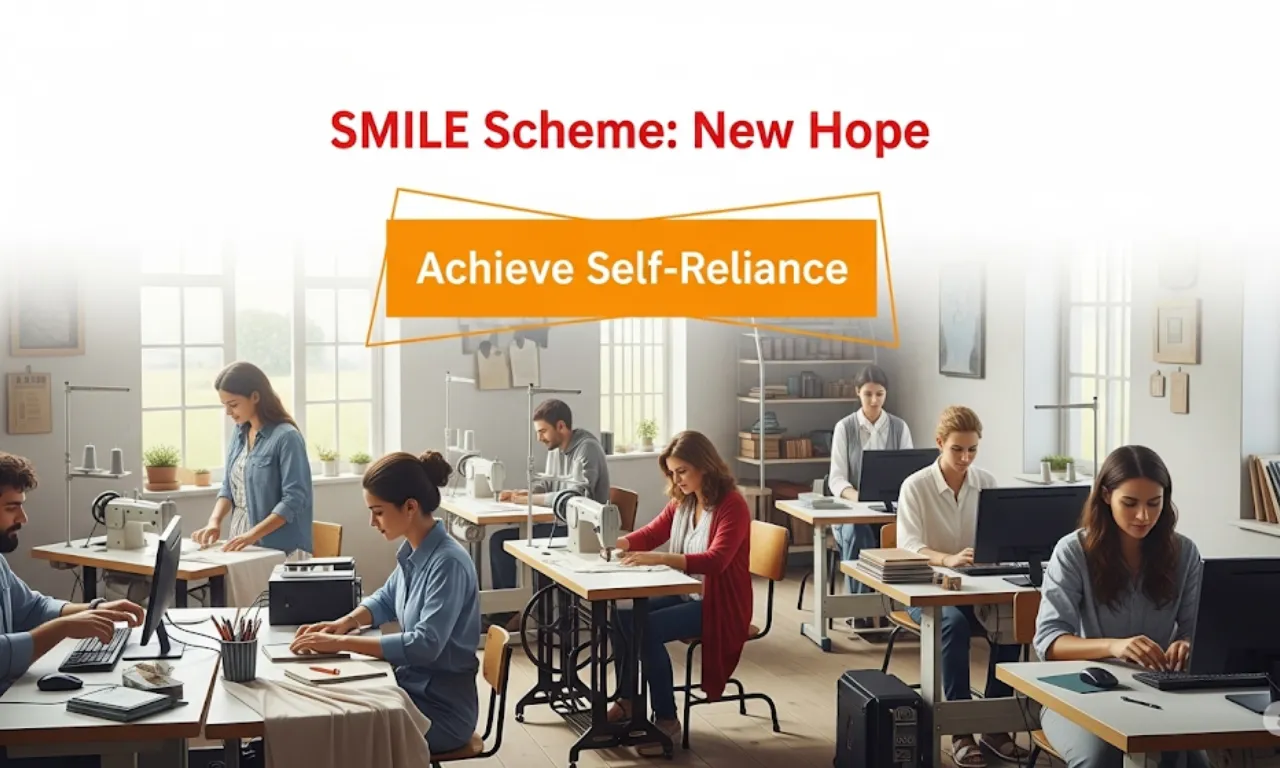- Central Government updates SMILE scheme with Rs 100 crore budget over 3 years to support beggars.
- Four-part plan: survey, outreach, rescue, and resettlement for respectful rehabilitation.
- Shelter homes, education, skill development, healthcare, and welfare connections key to the scheme.
The Central Government has updated the Support for Marginalised Individuals for Livelihood and Enterprise (SMILE) scheme focused on promoting independence and respectful rehabilitation of beggars. This improved program emphasizes shelter, training, and welfare support to restore social dignity and help at-risk individuals rejoin society in a strong way.
Main Points of the Revised SMILE Scheme
The improved SMILE scheme has a total budget of Rs 100 crore over three years, with Rs 30 crore for 2023-24, Rs 33 crore for 2024-25, and Rs 37 crore for 2025-26. Its goal is to rehabilitate 2,500 beggars in the first year, growing to 6,000 by the second, and 8,000 in the third year. This scheme moves away from just punishment towards a rights-based approach using organized support for helping marginalized individuals.
Also Read – National Overseas Scholarship Scheme by Ministry of Social Justice for SC and Marginalized Students
Four-Part Plan to Rehabilitation
This plan is at the center of SMILE’s work:
- Survey and Identification: Municipal and district bodies carry out detailed surveys to profile individuals based on age, gender, health, and legal status.
- Outreach and Mobilisation: After identification, beneficiaries get on-the-spot counselling and encouragement to move into shelter homes.
- Rescue and Shelter: Individuals are moved to shelter homes with basic facilities for comfort and safety.
- Complete Resettlement: Focus on long-term rehabilitation through education, skill building, and linking to welfare schemes.
Part played by Religious Trusts and Local Groups
Religious trusts, shrine boards, and pilgrimage site authorities actively help carry out SMILE in religious and tourist places. District administrations and local bodies work closely together for effective coordination. This teamwork improves outreach and resource sharing to support these at-risk populations.
Shelter Homes and Immediate Help Services
Shelter homes under SMILE can house at least 50 people, with each getting an annual budget of Rs 48.7 lakh for operations. These centers give beneficiaries food, clothing, hygiene kits, bedding, toilets, and activities like yoga.
The maximum stay is six months, but it can be extended for those with disabilities or family needs, giving beneficiaries a safe place to start rebuilding their lives.
Education and Skill Development Programs
Long-term reintegration focuses on education and job training:
- Children’s Education: Enrollment in nearby government schools under the Samagra Shiksha scheme with extra tuition after school.
- Adult Vocational Training: Programs for jobs like domestic help, security, vendors, and more through recognized institutes using schemes like PM-DAKSH and DAY-NULM.
Healthcare and Welfare Support
The scheme makes sure beneficiaries can get healthcare, especially for those at risk like persons with disabilities, elderly, or those needing medical care or addiction support. They are linked to welfare programs like PM Jan Arogya Yojana (PMJAY), Ayushman Bharat, and the public distribution system to support overall well-being.
Monitoring, Clarity, and Accountability Steps
To make sure SMILE runs smoothly and clearly, data from surveys is uploaded to a national portal managed by the Ministry of Social Justice and Empowerment for real-time tracking. Regular social audits and third-party checks confirm progress, with fund releases based on verified results. Urban local bodies, district administrations, and NGOs/agencies must report regularly and follow oversight rules.
This full structure of the SMILE scheme is made to help marginalized individuals by offering not just shelter and immediate support but also skills and chances to live respectful, independent lives.
| Year | Budget Allocation (Rs Crore) | Target Beneficiaries |
|---|---|---|
| 2023-24 | 30 | 2,500 |
| 2024-25 | 33 | 6,000 |
| 2025-26 | 37 | 8,000 |

